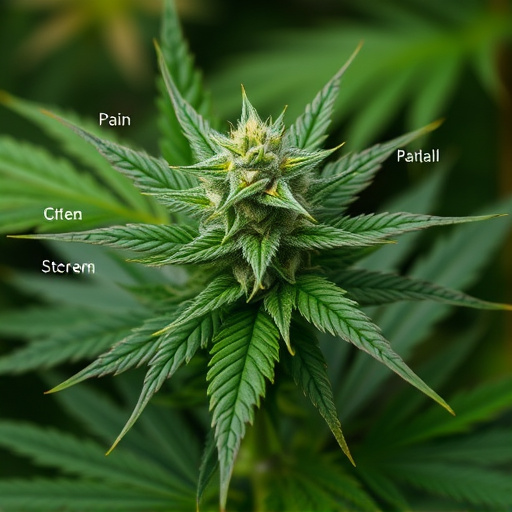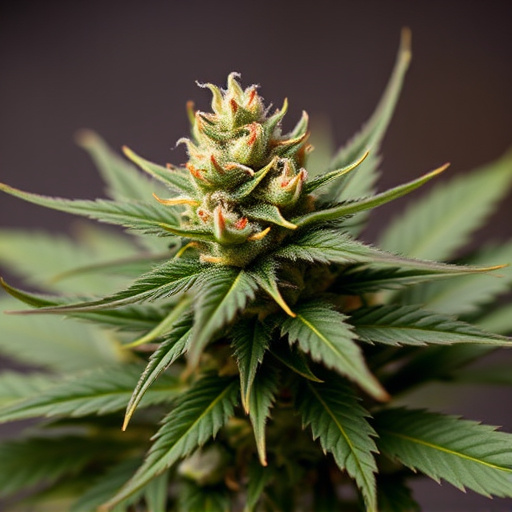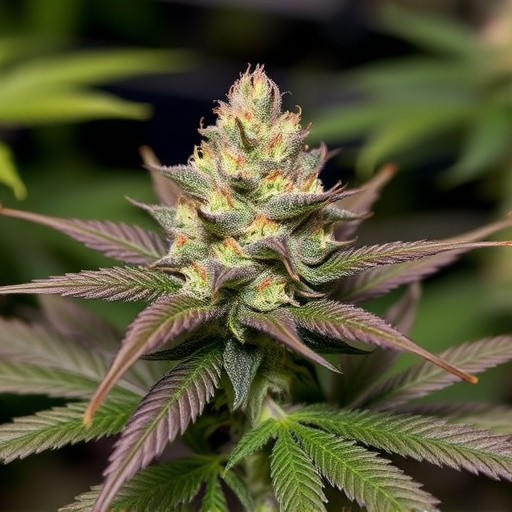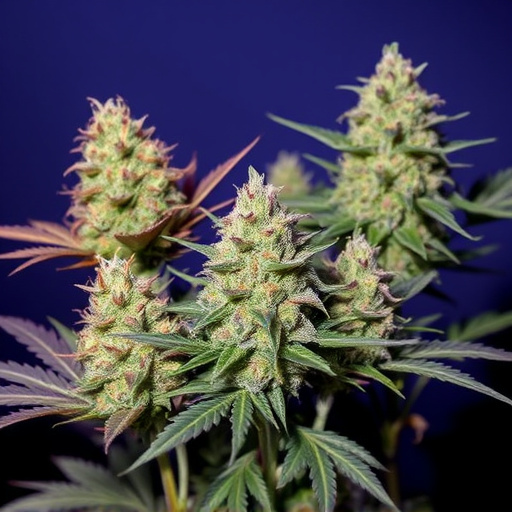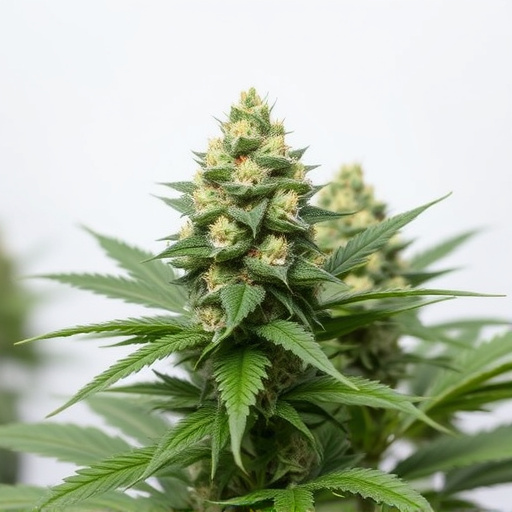Hybrid weed strains, created through crossbreeding cannabis varieties, offer a diverse range of therapeutic benefits due to their unique combinations of cannabinoids (like THC and CBD) and terpenes. These synergistic effects make them potent in treating specific health issues such as pain management, anxiety, sleep disorders, and appetite loss. As an emerging area of medical research, hybrid weed strains hold immense promise for alternative medicine, with clinical studies showing promising results in managing conditions like multiple sclerosis and reducing anxiety in PTSD or social anxiety disorder patients.
Discover the profound medical potential hidden within hybrid weed strains. This comprehensive guide explores how these unique compositions, rich in cannabinoids, offer therapeutic benefits for a range of conditions. From understanding the intricate chemistry of hybrid strains to delving into groundbreaking clinical research, we uncover the real-world applications transforming healthcare. Learn how these plants hold promise for everything from chronic pain relief to anxiety management, offering a new frontier in alternative medicine centered around hybrid weed strains.
- Understanding Hybrid Weed Strains: Their Composition and Medical Potential
- Cannabinoids in Cannabis Flower: Key Compounds for Therapeutic Use
- Clinical Research and Real-World Applications: Exploring the Medical Uses of Hybrid Weed Strains
Understanding Hybrid Weed Strains: Their Composition and Medical Potential
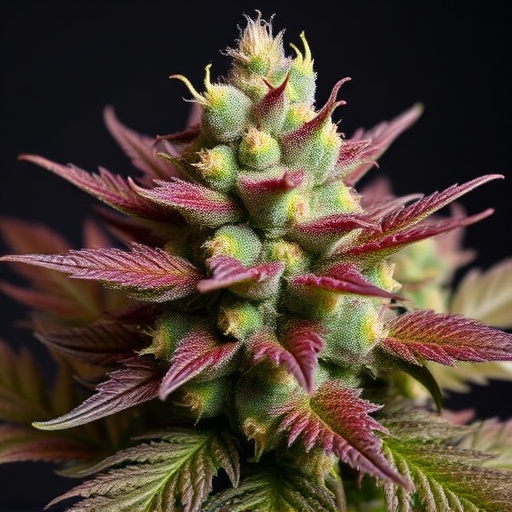
Cannabis flower, known for its therapeutic properties, is often categorized into various hybrid strains, each with a unique composition of cannabinoids and terpenes. These hybrids are created by cross-breeding different cannabis varieties to amplify specific medical benefits. Understanding the composition of these strains is crucial in unlocking their potential as alternative medicine.
The medical potential of hybrid weed strains lies in the synergistic effects of cannabinoids like THC and CBD, along with a variety of terpenes that contribute to aroma, flavor, and potential therapeutic outcomes. Different hybrids may offer distinct advantages, ranging from pain relief and anxiety reduction to improved sleep and appetite stimulation. Researchers are continuously exploring these strains for their ability to address various health conditions, making them an exciting area of study in the field of medicine.
Cannabinoids in Cannabis Flower: Key Compounds for Therapeutic Use
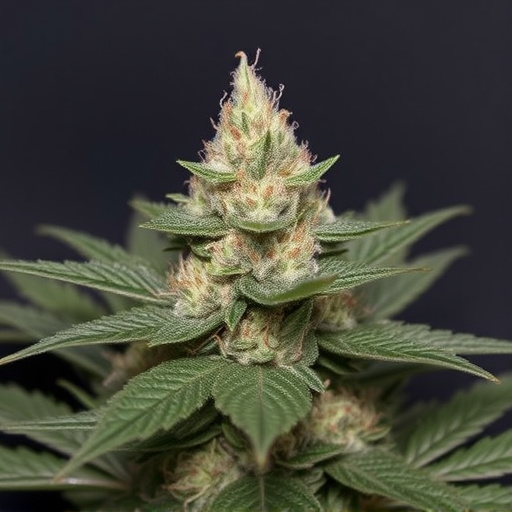
Cannabis flower contains a diverse range of cannabinoids, each with its unique therapeutic potential. The most well-known and studied cannabinoids are THC (tetrahydrocannabinol) and CBD (cannabidiol), but there are over 100 other compounds identified so far. These cannabinoids interact with the body’s endocannabinoid system, which plays a crucial role in maintaining homeostasis, or balance, in various physiological processes.
Hybrid weed strains, created through genetic crossbreeding, offer a wide array of cannabinoid profiles. This allows for precise tailoring of treatments to specific conditions. For instance, high CBD strains are often sought after for their potential anti-inflammatory and anxiolytic effects without the intoxicating properties of THC. Conversely, strains with higher THC content may be beneficial for pain management and stimulating appetite, making them useful in treating conditions like chronic pain and anorexia nervosa.
Clinical Research and Real-World Applications: Exploring the Medical Uses of Hybrid Weed Strains
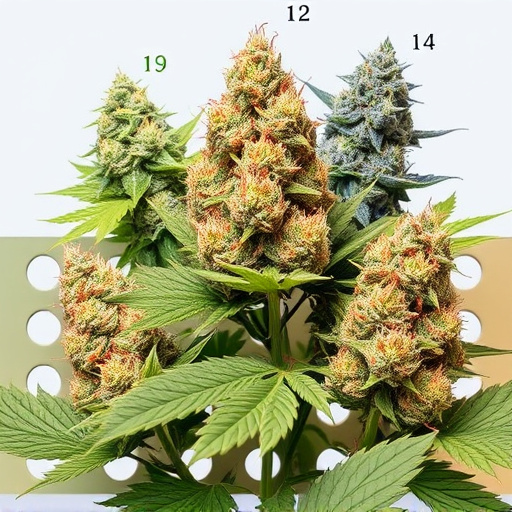
The medical potential of cannabis has sparked a surge in clinical research, leading to a deeper understanding of its diverse compounds and their applications. Among the various types, hybrid weed strains have emerged as promising candidates for treating a wide range of conditions. These hybrids combine the beneficial traits of different cannabis varieties, offering unique profiles of cannabinoids and terpenes. Clinical studies have explored their efficacy in managing pain, anxiety, and inflammation, often with encouraging results. For instance, certain hybrid strains have shown potential in alleviating neuropathic pain, providing an alternative treatment option for patients seeking relief from chronic conditions.
Real-world applications of these hybrids further highlight their versatility. Patients with multiple sclerosis have reported reduced spasticity and muscle stiffness after using specific hybrid strains. Additionally, the anxiolytic properties of some hybrids have aided individuals dealing with post-traumatic stress disorder (PTSD) and social anxiety disorders, offering a natural approach to managing mental health conditions. Ongoing research continues to uncover the complex interactions between cannabinoids and the body’s endocannabinoid system, paving the way for evidence-based medical practices involving hybrid weed strains.
Hybrid weed strains have emerged as a promising area of research in the medical cannabis field, offering unique combinations of cannabinoids that can provide targeted therapeutic effects. Understanding their composition and potential benefits, as highlighted in this article, paves the way for further clinical trials and real-world applications. The diverse range of hybrid strains, with their specific cannabinoid profiles, presents an exciting opportunity to address various medical conditions effectively. As research continues, we can expect to see more evidence supporting the medical uses of these hybrid weed strains, further expanding the therapeutic landscape of cannabis-based treatments.

